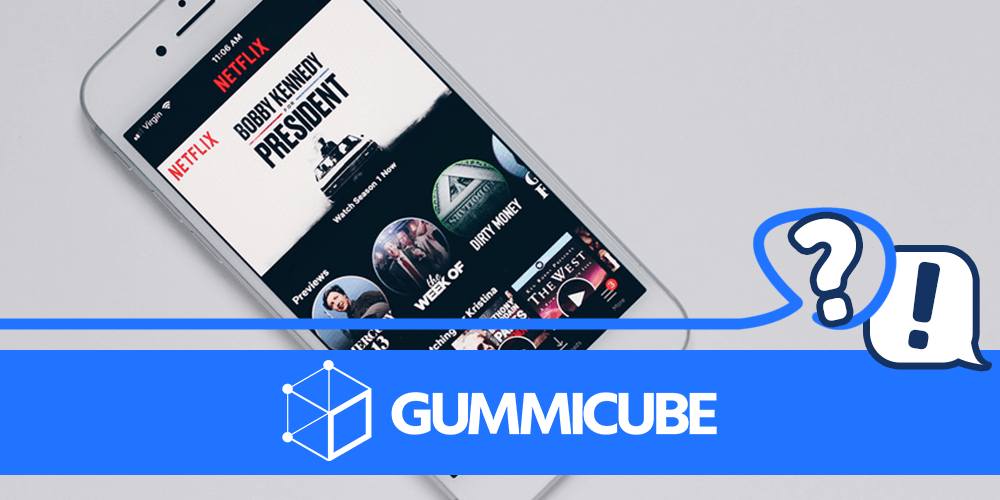Avoiding the App Store Tax: Can it be Done and its Impact on Mobile Marketing
January 3rd, 2019

In mid-2018, mobile app developers such as Netflix and Epic Games tried to circumvent the App Store’s cut of the profits from in-app purchases. Now Netflix has launched a global change to no longer support iTunes as a method of payment, so as to ensure that Apple will not be receiving any percentage of the developer’s profits. Following this announcement, one must understand how Netflix is doing this and whether or not other developers can, will or should follow their lead, as well as how it can impact their App Store Optimization.
- The App Store Tax & Mobile Marketing
Typically, Apple receives a percentage of the profits an app makes through in-app purchases. For most microtransactions, this is 30 percent, although for apps with regular subscription payments it can go to 15 percent or lower. The decreased percentage for subscription apps was initially intended to appeal to apps like Netflix and Spotify, but even then, it resulted in Apple receiving significant profits. In 2018, TechCrunch reports, Netflix earned $853 million through the App Store. Subsequently, Apple earned around $127 million from the same subscriptions – millions of dollars that would have otherwise gone straight to Netflix. It’s worth noting that many apps with subscription services, including Netflix, are listed under “Best Free” in the Apple App Store, as the apps are still free to download. This is important for an app’s placement within the app store – free apps can still make a profit through subscriptions, although their subscription pricings need to be included in their descriptions. Developers must consider if they want their apps to be available as free apps with subscriptions or as a single paid download and focus their App Store Optimization with their offerings in mind.
- Evading the Tax
As Apple only takes a cut from payments made through iOS apps, the obvious way to avoid the tax is to not offer the subscription services through the app. That is exactly what Netflix is doing, as it now requires users to sign up and pay for the service through the company’s website before logging on through the app. This is only for new users or returning users who previously canceled payment for at least one month. Existing users who are currently paying through the App Store will not have their accounts changed, so Apple will still be able to receive a portion of the profits made through them as long as their accounts are active. Netflix is not the only developer to attempt this, as companies such as Valve, Spotify and Financial Times have been attempting to do the same. There are rising concerns that this may be a trend for subscription apps.
- What This Means for Apps & ASO
Netflix is the top grossing app on the App Store, so losing its profits will have a big impact on the App Store and even the overall app economy. However, the company’s plan may not be allowed by the App Store. Section 3 of the App Store Submission Guidelines states that “apps and their metadata may not include buttons, external links, or other calls to action that direct customers to purchasing mechanisms other than in-app purchases.” That is to say: apps cannot inform users that their services are available for purchase outside of the app. Spotify attempted this back in 2016 and was pulled from the App Store as a result, so Netflix may face similar consequences. In addition to potentially going against the terms of service, this can also impact an app’s App Store Optimization. If an app is marketed as a subscription service, but users cannot purchase the subscription directly, it can drive uninstallations. That would have a negative impact on its rankings within the App Store due to user dissatisfaction. While Netflix may be able to get away with this, due to its streaming services being available from its website, other subscription apps may not. While Netflix’s play may not shake up the landscape of subscription apps, it’s still making a move that other large companies may try to emulate. Instead, apps with subscription services should aim to increase their userbase with proper App Store Optimization. Creating an optimized App Store listing can improve its rankings, visibility and conversions within the store, potentially resulting in more subscriptions and more profits, even if Apple takes a portion of it. Rather than pull away from the App Store, apps utilizing good ASO can see an increase in profits by working with and within the App Store. When companies try to go against the tax and guidelines, it’s important to watch and see what the end result is, but no matter how it goes for Netflix, apps will still need ASO.

